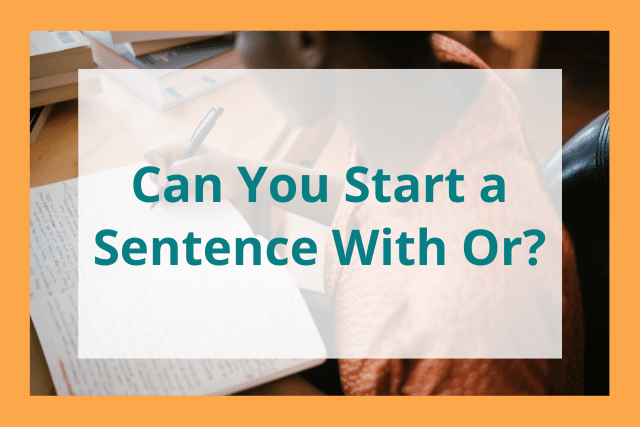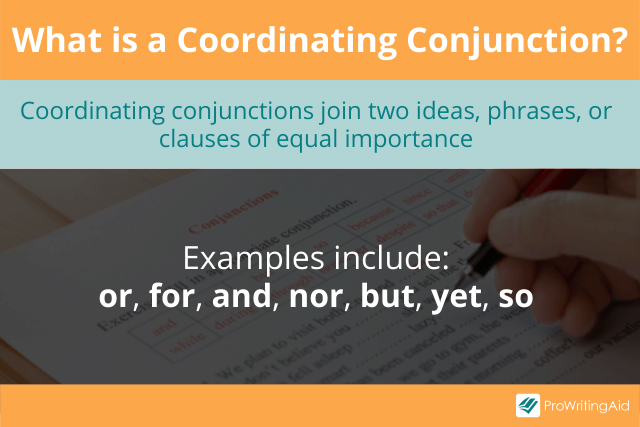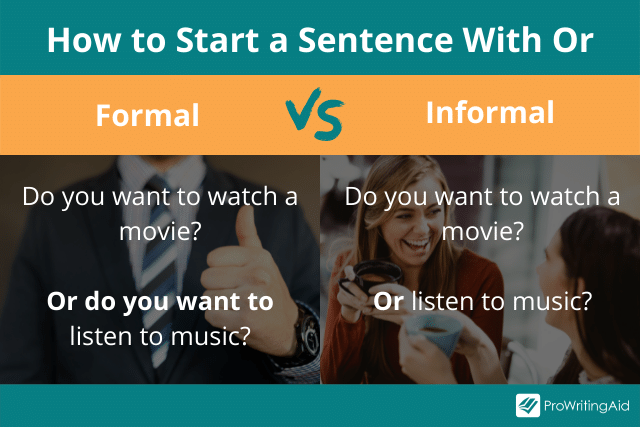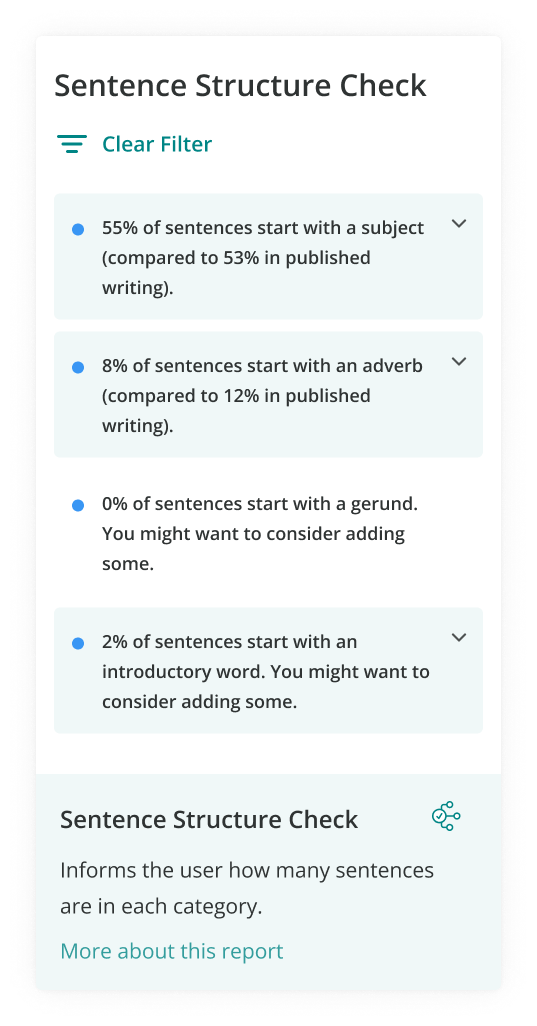
The English language contains certain rules around how to start sentences. One rule commonly taught in schools is that you can’t start a sentence with a conjunction like or.
But if you open any magazine or book, you’ll see plenty of instances that break this rule.
So can you start a sentence with the word or? The simple answer is yes. Or is a conjunction that can be used to begin a sentence. However, in certain situations, it’s best not to start a sentence with or.
In this article, we’ll show you how and when to use it at the beginning of a sentence.
Can I Start a Sentence With Or?
To help you understand how to use or to start a sentence, let’s take a look at its function.
Conjunctions are words that link other words, phrases, and clauses together. Or is a particular type of conjunction known as a coordinating conjunction. These are words that join two parts of a sentence with equal grammatical importance.

Examples of coordinating conjunctions are or, and, but, nor, yet, for, and so.
As well as linking words and phrases within sentences, there is no rule against starting a sentence with a conjunction such as or. In fact, beginning a sentence with or can create impact and emphasis.
How to Start a Sentence With Or
The conjunction or introduces a choice. It is also used for clarification or to show the result of an action.
- Do you want to watch a movie or listen to music?
Let’s take the example above to explain how to begin a sentence with or.
We can split the sentence into two, which then becomes:
- Do you want to watch a movie? Or listen to music?
The sentence beginning with or is an example of a sentence fragment. This is acceptable in forms of informal writing. Using fragments when crafting character dialogue can make speech feel more natural too.

However, this type of fragment is best avoided in formal contexts such as business and academic writing, as they can make work appear unprofessional.
To fix a sentence fragment, add in a main clause right after the coordinating conjunction. Here is the revision:
- Or do you want to listen to music?
Now you have a sentence that starts with the word or and is grammatically correct.
While it’s acceptable to start a sentence with or, be discerning about when you choose to do so. Repeating this type of sentence structure too much can make writing monotonous to read.
You can always use ProWritingAid’s Sentence Structure Report to analyze and highlight sentence patterns you may be overusing.

Whenever you’re starting a sentence with or, or any other conjunction, you should not put a comma after it. The only exception to this is if a parenthetical clause follows the conjunction. For example:
- Or, even though you won’t like this idea, you could share a room with your sister
Examples of Beginning a Sentence With Or
Here are a few sentences that begin with or:
- I saw a unicorn. Or maybe it was a white horse in a Halloween costume.
- I think she’s lying. Or maybe I’m just being paranoid.
- Or we could go over the details some more.
- Or have you changed your mind about leaving tomorrow?
- Or we could letter more writers to the conference.
Tips for Starting a Sentence With Or
When starting a sentence with or, be aware of your audience. This will dictate how flexible you can be with the sentence structure.
If you do choose to use a fragment sentence beginning with or, provide enough context for the reader to understand the fragment.
You should also be mindful not to overdo it. Starting a sentence with or can create dramatic effect, but overusing it can negatively affect the flow of your writing.



